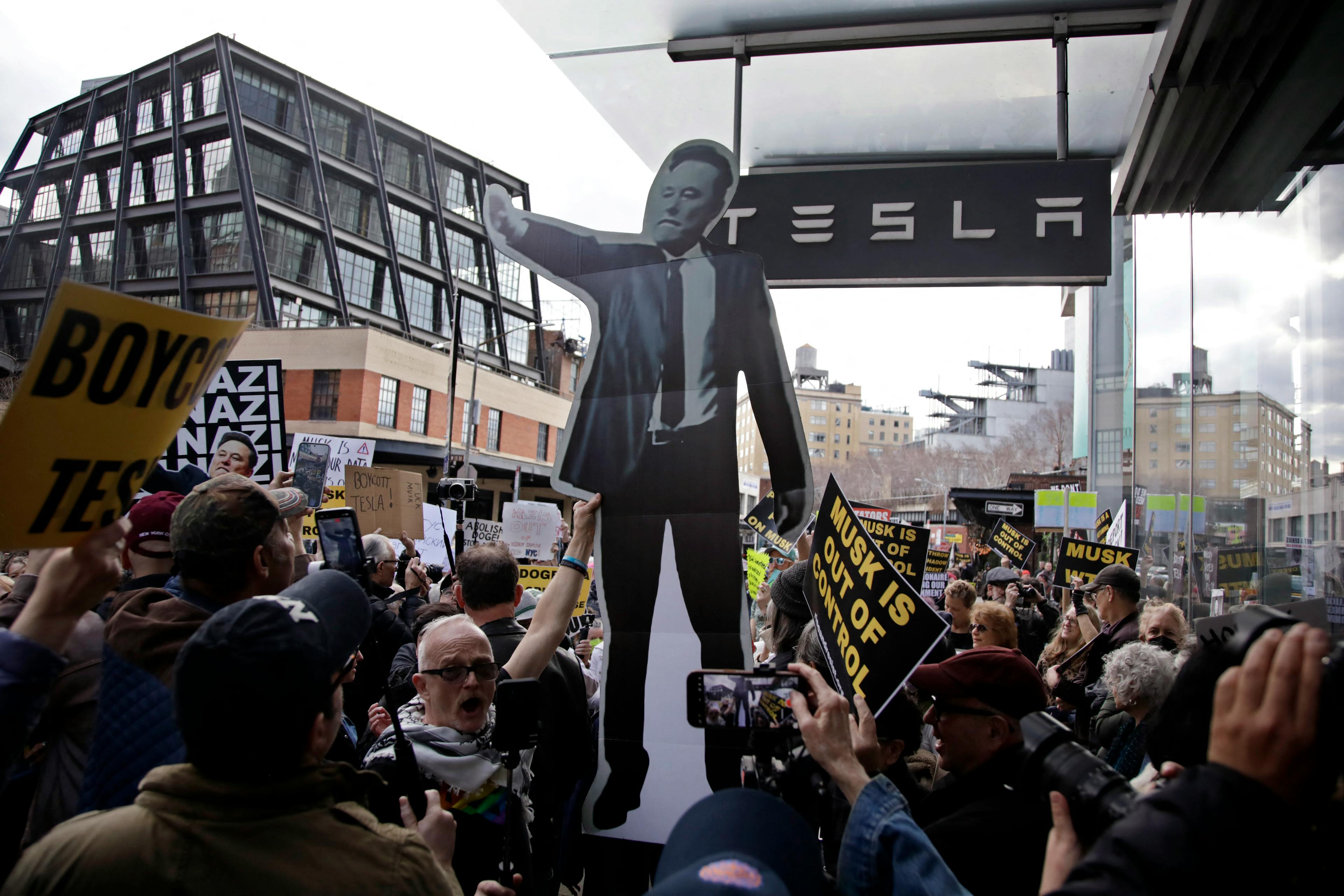JPM analysts struggle to understand why Elon Musk is destroying Tesla’s brand
“Mr. Musk’s work with the Department of Government Efficiency has proven controversial.”
JPMorgan’s Tesla analysts joined the parade of Wall Street observers axing forecasts for Tesla vehicle sales Wednesday, reducing their full-year 2025 estimate for deliveries 11% from 1.994 million to just 1.775 million. That would be a year-over-year decline of 1%.
But the more interesting part of the note is the palpable befuddlement the analysts express about Tesla CEO Elon Musk’s behavior, which has generated fury from key constituencies worldwide. In the US, the company’s core consumers are enraged by his work as an agent of the Trump administration’s legally murky campaign to disrupt the federal civil service. Meanwhile, his flirtation with far-right European politics and comments on Ukraine have enraged consumers in Europe. JPM analysts write:
“We struggle to think of anything analogous in the history of the automotive industry, in which a brand has lost so much value so quickly, with perhaps the closest example being the decline in sales of Japanese and Korean brand vehicles in China in 2012 and 2017, respectively, amidst various diplomatic disputes (Japanese brand sales recovered after a year, while Korean brand sales never have), although the damage in that case was confined to a single market, whereas the decline in Tesla sales in 2025 is not specific to any one nation or geography.”
Citing polling data, they write that Musk’s immersion in Trumpist politics is a problem in the US:
“While views toward Mr. Musk have increased and decreased in roughly equal parts amongst Republicans and Democrats, respectively, resulting in the Tesla brand being viewed just as positively by Trump voters (+18 ppts) as it is negatively by Harris voters (-18 ppts), it is Democrats who are more open to purchasing EVs.”
Meanwhile, on the continent...
“Tesla sales in Europe are under far greater pressure than at home as a consequence of statements by Mr. Musk pertaining to the war in Ukraine, U.S. participation in NATO, and far-right political parties.”
While some of those issues may have played into the more than 50% drop in Tesla’s share price since its December peak, retail sentiment, rather than business fundamentals, drives Tesla’s share price. And today, following the softer-than-expected inflation report, the vibes for Tesla and other Trump-related trades are good.
